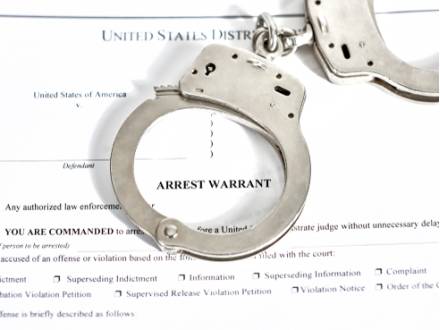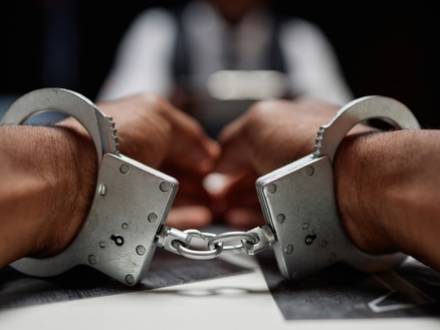Recent Blog Posts
Illinois Ghost Gun Laws: What You Need to Know
 In recent years, a new type of firearm has been on the market. Ghost guns are homemade firearms without a serial number, which means they are untraceable. They became popular due to the spread of online kits and DIY firearm parts, but with a recent high-profile case making headlines across the country, ghost guns are a growing concern in Illinois and nationwide. To understand how this recent development is regulated, speak with an experienced Elgin, IL criminal defense lawyer who has experience with gun law cases.
In recent years, a new type of firearm has been on the market. Ghost guns are homemade firearms without a serial number, which means they are untraceable. They became popular due to the spread of online kits and DIY firearm parts, but with a recent high-profile case making headlines across the country, ghost guns are a growing concern in Illinois and nationwide. To understand how this recent development is regulated, speak with an experienced Elgin, IL criminal defense lawyer who has experience with gun law cases.
What Are Ghost Guns?
Ghost guns are a type of firearm assembled from kits or parts that can often be purchased online. Some kits enable 3D printing to produce weapon components. They can be assembled at home and do not have serial numbers, making it harder for law enforcement to trace them when they are used in a crime. This makes them particularly attractive to people who do not want to be tracked and can pose a significant challenge for police trying to solve firearm-related crimes.
There Is a Warrant for My Arrest. What Should I Do?
 It can be overwhelming and distressing to discover that a warrant has been issued for your arrest. As difficult as it can be, it is important to stay calm and figure out what it means. Acting quickly and responsibly can help you avoid making the situation worse. An experienced Illinois criminal defense lawyer can help you understand your warrant and what to do about it.
It can be overwhelming and distressing to discover that a warrant has been issued for your arrest. As difficult as it can be, it is important to stay calm and figure out what it means. Acting quickly and responsibly can help you avoid making the situation worse. An experienced Illinois criminal defense lawyer can help you understand your warrant and what to do about it.
What Is an Arrest Warrant?
An arrest warrant is a legal order issued by a judge authorizing law enforcement officers to arrest you. A warrant is typically issued in various situations including when someone:
-
Is accused of committing a crime
-
Fails to appear in court
-
Does not follow the terms of a court order
What Are My Rights During an Arrest in Illinois?
 Being arrested can be a frightening and overwhelming experience, particularly if this is your first time. However, when you are arrested, you have certain rights guaranteed by the U.S. Constitution and Illinois state laws. These rights are there to protect you against unnecessary harm and unfair treatment. Knowing your rights can help you stay calm and avoid mistakes that could impact your case. To learn more about your rights during an arrest, speak with an experienced Elgin, IL criminal defense lawyer.
Being arrested can be a frightening and overwhelming experience, particularly if this is your first time. However, when you are arrested, you have certain rights guaranteed by the U.S. Constitution and Illinois state laws. These rights are there to protect you against unnecessary harm and unfair treatment. Knowing your rights can help you stay calm and avoid mistakes that could impact your case. To learn more about your rights during an arrest, speak with an experienced Elgin, IL criminal defense lawyer.
The Right to Remain Silent
One of the most important and most commonly quoted rights you have when you are arrested is the right to remain silent. During an arrest, you need to provide the police with your name and whatever basic identifying information they ask for. Beyond that, you have the protected right to stay quiet and not answer their questions or give them information that could incriminate you or otherwise be used against you.
How Do Prior Convictions Impact an Illinois Criminal Defense Case?
 A past criminal record can weigh heavily on someone charged with a crime in Illinois. Prior convictions can have a big impact on a current criminal case. Understanding how is crucial for anyone facing legal trouble in Illinois. An experienced Elgin, IL criminal defense lawyer can explain how your previous convictions might impact your case and what options you have.
A past criminal record can weigh heavily on someone charged with a crime in Illinois. Prior convictions can have a big impact on a current criminal case. Understanding how is crucial for anyone facing legal trouble in Illinois. An experienced Elgin, IL criminal defense lawyer can explain how your previous convictions might impact your case and what options you have.
What Are Prior Convictions?
Anytime someone was found guilty of a crime in the past, they have a prior conviction. That can include serious felonies, misdemeanors, or even simple traffic violations. Illinois law allows prosecutors to bring up past convictions during a new criminal case, regardless of whether they are relevant to the case or how severe they were, and this can affect how the case is handled.
Impact of Prior Convictions on Sentencing
Judges sometimes give a more severe sentence to a defendant with a history of breaking the law because Illinois law allows for something called "sentencing enhancements" based on prior convictions. A criminal history might make a defendant subject to harsher punishments for a crime than they otherwise would be.
Can Second Chance Legislation Help Me?
 Illinois’s criminal justice system has been seeing some significant changes in recent years. A major focus of these changes is on helping individuals get a fresh start once they have served their sentence. Aptly known as second chance legislation, these changes aim to remove barriers like criminal records that can make it hard for people who have paid their debt to society to find housing or employment.
Illinois’s criminal justice system has been seeing some significant changes in recent years. A major focus of these changes is on helping individuals get a fresh start once they have served their sentence. Aptly known as second chance legislation, these changes aim to remove barriers like criminal records that can make it hard for people who have paid their debt to society to find housing or employment.
People who were charged with nonviolent offenses or have shown a willingness to change can benefit from this legislation. If you are interested in learning more about how second chance legislation might be relevant for you, speak with a skilled Kane County, IL criminal defense lawyer.
What is Second Chance Legislation?
The main focus of Illinois’s second chance legislation is on expunging (erasing) or sealing criminal records. Expungement means that all records of a conviction are erased, as if it never happened. It is a possibility for specific offenses. Sealing means that access to the criminal record is restricted but not completely erased. Either option can help people get a fresh start after having served their time. This is especially important for people who want to apply for a job, housing, or loans, which can be challenging with an accessible criminal record.
What Are Charges and Penalties for Illinois Traffic Violations?
 Whenever you get behind the wheel, it is important to understand what charges and penalties you might face if caught violating the law. With traffic violations ranging from minor offenses to serious crimes, consequences can vary widely.
Whenever you get behind the wheel, it is important to understand what charges and penalties you might face if caught violating the law. With traffic violations ranging from minor offenses to serious crimes, consequences can vary widely.
Whether you are caught speeding, running a red light, or driving under the influence (DUI), you need to understand what is at stake. If you have specific questions about charges you might face, an experienced Elgin, IL criminal defense lawyer can review your case and offer tailored guidance.
Common Traffic Violations and Their Penalties
Some of the most common traffic violations in Illinois include:
-
Speeding: If you were going less than 20 mph over the speeding limit, you could face a fine of $120-$150 and might get a few points on your driver’s license. Speeding over 20 mph faster than the speeding limit can result in fines of $150-$250, with more points on your license. Speeding over 35 mph above the limit can lead to charges of reckless driving, which is a criminal offense. You might face fines of up to $2,500, up to a year in jail, and your license might be suspended.
What Is Deceptive Practice and How Is It Punished?
 Getting charged with a crime can be an overwhelming experience. This can be particularly true if you do not understand what you are being charged with. Some charges are more commonly discussed and understood, but others that are less known about can be a source of confusion.
Getting charged with a crime can be an overwhelming experience. This can be particularly true if you do not understand what you are being charged with. Some charges are more commonly discussed and understood, but others that are less known about can be a source of confusion.
One example of a lesser-known crime is deceptive practice. If you are facing charges of deceptive practice, let a knowledgeable Elgin, IL criminal defense lawyer explain everything you need to understand and help you present a strong defense.
What Is Deceptive Practice?
One of the reasons why deceptive practice can be difficult to understand is because that title describes a wide range of criminal activity. The main characteristic of all the illegal actions that fall under the category of "deceptive practice" is that the defendant is accused of knowingly and intentionally misleading someone else for personal gain, and this is most often for financial gain.
What Is Deceptive Practice and How Is It Punished?
 Getting charged with a crime can be an overwhelming experience. This can be particularly true if you do not understand what you are being charged with. Some charges are more commonly discussed and understood, but others that are less known about can be a source of confusion.
Getting charged with a crime can be an overwhelming experience. This can be particularly true if you do not understand what you are being charged with. Some charges are more commonly discussed and understood, but others that are less known about can be a source of confusion.
One example of a lesser-known crime is deceptive practice. If you are facing charges of deceptive practice, let a knowledgeable Elgin, IL criminal defense lawyer explain everything you need to understand and help you present a strong defense.
What Is Deceptive Practice?
One of the reasons why deceptive practice can be difficult to understand is because that title describes a wide range of criminal activity. The main characteristic of all the illegal actions that fall under the category of "deceptive practice" is that the defendant is accused of knowingly and intentionally misleading someone else for personal gain, and this is most often for financial gain.
Can I Be Punished the Same for AI Child Porn as if It Was Real?
 AI is an indisputable new part of life these days. Whether it is translating a document written in a foreign language, determining which news stories will be most relevant to you on your favorite news website, or monitoring your business and alerting you to urgent needs, AI has had a major impact.
AI is an indisputable new part of life these days. Whether it is translating a document written in a foreign language, determining which news stories will be most relevant to you on your favorite news website, or monitoring your business and alerting you to urgent needs, AI has had a major impact.
One of the fields in which AI has been prevalent is pornography, particularly with creating computer-generated pornographic content featuring minors in an attempt to avoid criminal charges for child pornography. However, many people are surprised to learn that AI child porn can be punished the same as authentic child porn. If you are facing criminal charges and in need of legal guidance, speak with an experienced Kane County, IL criminal defense lawyer.
How is AI-Generated Child Porn Charged?
Some people mistakenly believe that while child pornography is illegal, digitally-created imagery is not. They are surprised to learn that AI-generated content that depicts minors in sexual situations can result in serious charges and penalties.
How Can I Prove I Was Acting in Self-Defense?
 When someone feels threatened by another, it is a natural reaction to do anything possible to eliminate the threat. Unfortunately, in situations like these, the person who originally posed a risk sometimes claims that their would-be victim was the aggressor and initiated the attack. Someone who acted in self-defense can find it overwhelming to face charges of domestic violence for stopping themself from getting hurt by the real attacker. If this happens to you, speak with an experienced Elgin, IL criminal defense lawyer to understand your legal options.
When someone feels threatened by another, it is a natural reaction to do anything possible to eliminate the threat. Unfortunately, in situations like these, the person who originally posed a risk sometimes claims that their would-be victim was the aggressor and initiated the attack. Someone who acted in self-defense can find it overwhelming to face charges of domestic violence for stopping themself from getting hurt by the real attacker. If this happens to you, speak with an experienced Elgin, IL criminal defense lawyer to understand your legal options.
What Is Considered Domestic Violence in Illinois?
According to Illinois law, any act or threat of violence - including emotional abuse, intimidation, physical harm, and harassment - committed by one member of a family or household against another is categorized as domestic violence. While spouses and parent/child relationships are often involved in these cases, violence between people who are or were dating can also be considered.







